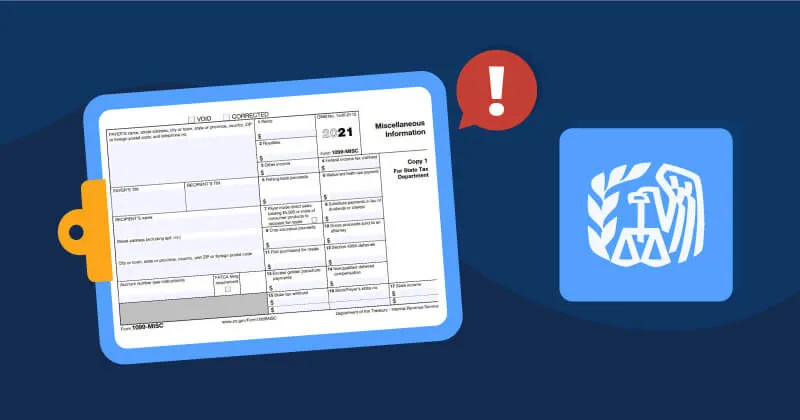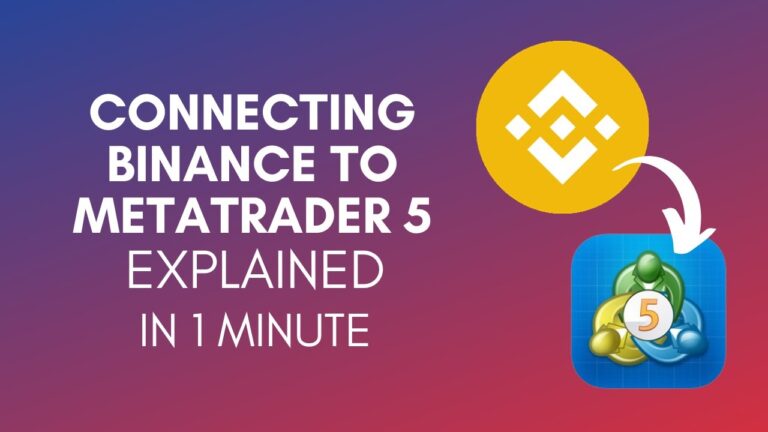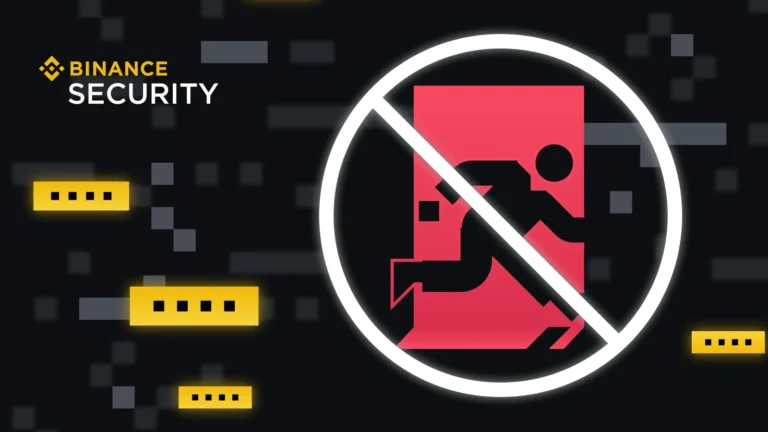What is a Binance 1099?
Understand Binance 1099 forms for crypto taxes, so you can get to understand what is 1099 crypto income, how to get your 1099 from Binance US, and whether Binance supports U.S. tax reporting in this comprehensive guide.

Binance 1099 has allowed cryptocurrency to redefine the financial vista with new ways to acquire and exchange value. If you have used Binance US, one of the leading cryptocurrency exchanges in the industry.
It may have you wondering how you can take charge of your crypto against tax implications. A common question one comes across is, “What is the Binance 1099, and how do I use it?”
These are tax forms designed to help American users report their cryptocurrency income to the IRS.
This tutorial provides a detailed overview of what 1099 crypto income actually is, how Binance US eases the tax reporting process, and what you can do to ensure compliance with the U.S. tax laws.
What is a 1099 Crypto Income Form?
The tax compliance of cryptocurrency traders and investors is thereby necessary. The IRS has obligated taxpayers to report their crypto earnings, and forms 1099 play an important role in the process.
1. Understanding the 1099 Form
A 1099 form is a tax document provided by businesses or institutions that report non-salary income to the IRS and taxpayer. Income which could be from freelance work, dividends, interest, or, for cryptocurrency, income from trading or rewards.
2. 1099 and Cryptocurrency
The IRS treats cryptocurrency as property. Any crypto taxable events must be reported. Here’s how 1099 forms apply to crypto income:
- Capital Gains – When you sell crypto for a profit, the gain is taxable.
- Income from Rewards – Staking rewards, referral bonuses, and airdrops are considered taxable income.
The 1099 form highlights the summary of your crypto activity for the tax year and helps both you and the IRS understand how much you owe as taxable income.
3. Types of 1099 Forms Relevant to Crypto
Depending on the nature of their transaction, several types of 1099 forms may apply to users of cryptocurrency:
How to Get Your 1099 from Binance

This will be when you begin with the 1099-K forms whose transactions went over a threshold. Thereby, this eventually tended to misrepresent the taxable income of users because the IRS interpreted the total amount of transactions as income rather than as gains or losses.
But then, one has to:
1. Log in to your Binance US account with your credentials.
2. In your account dashboard, locate a section labeled “Tax Reporting” or “Transaction History.”
3. You can export your record of trades, deposits, withdrawals, and staking rewards from Binance US.
4. The downloaded data from above into a crypto tax software like CoinTracker, TaxBit, or Koinly.
Each of these services calculates your capital gains and income and can create IRS-compliant tax forms, including 1099s. Unlike some platforms, Binance US does not send 1099 forms directly to the IRS at this time.
By default, this puts the burden on users to calculate and report their taxable income. However, Binance provides the necessary tools to make this process more seamless.
Is It Possible to Get U.S. Taxes from Binance?
Although Binance US will not directly calculate your taxes or file them on your behalf, the platform does support users in satisfying their tax requirements through various resources and partnerships.
1. Binance US Tax Reporting Tools
Binance US features a highly functional tax reporting section where users can download transaction data. These reports include:
Trade history, for example, buying and selling of transactions, deposit and withdrawal records, staking and reward earnings
By compiling this information, one is able to calculate their total taxable events for the year.
2. Third-Party Crypto Tax Platforms
To make tax reporting easy, Binance US partners with major crypto tax platforms, including:
- CoinTracker: Directly integrates with Binance US to calculate your gains and auto-fill your tax forms.
- TaxBit: Offers automated tax reports for U.S. users.
- Koinly: Generates capital gain reports and supports multiple scenarios for taxes.
These platforms remove the headache from crypto taxes and offer forms that are in concert with what is required by the IRS.
3. Learning Material
Binance US has prepared FAQs and guides to assist users in understanding their tax obligations. If one’s tax scenario is complex, a tax professional should be consulted.
Why Should Crypto Taxes Be Reported?
Okay, taxes might not be the most exciting thing about crypto, but they are important. Here’s why accurate reporting matters:
1. The IRS’s Stand on Cryptocurrency
The IRS views cryptocurrency as property. Thus, theoretically, every single transaction may represent a possible taxable event. By example:
- Trading Crypto for USD: Selling Bitcoin for dollars generates capital gains or losses.
- Crypto-to-Crypto Trades: Exchanging Ethereum for Solana also triggers a taxable event.
- Receiving Rewards: Staking or mining rewards are taxable as ordinary income.
The IRS requires individuals to report all such activities on their annual tax return.
2. Avoiding Penalties and Audits
Failing to report your crypto earnings could result in penalties, interest charges, or even audits. Following the IRS regulations for compliance will keep you out of trouble legally and financially.
3. Building a Transparent Tax Record
Accurately reporting your crypto activities shows that you are acting in good faith and in a very transparent manner. This can be most helpful in case of an audit or when applying for loans and other financial services.
Common Challenges with Binance 1099
Even though Binance US offers some instruments to perform tax reporting, it is not without challenges:
1. Understand Taxable Events
Taxation of crypto can be very confusing, especially for complete beginners. It often may be difficult for users to identify which activities are subject to taxation and how gains or losses should be calculated.
2. Intricate Transaction Histories
Frequent traders might have hundreds, if not thousands, of transactions to analyze. It would be extremely time-consuming to manage that data manually.
3. Varying State and Federal Laws
Tax laws for crypto differ between states and countries. Binance US focuses on federal compliance, so users must consider state-level regulations independently.
4. Cost Basis Calculations
Calculating the cost basis of crypto transactions—especially for assets bought and sold at different times—can be tricky without the help of tax software.
How to Stay Ahead with Crypto Taxes

Being proactive about crypto taxes saves one much time and lessens the psychological burden. It would mean keeping ahead of the following:
1. Track Your Transactions Regularly
Keep an updated record of trades, deposits, and withdrawals. By regularly tracking, you stay prepared during tax season.
2. Make Use of Technology
Use crypto tax platforms to make calculations easier and prepare IRS-compliant forms. Many of them are integrated with Binance US.
3. Stay Informed
Crypto tax laws change frequently. Keep yourself informed of the latest guidance issued by the IRS and consult a tax professional when necessary.
4. Plan for Tax Payments
If you’ve made significant profits from crypto, set aside funds to cover your tax bill. Planning ahead prevents surprises at tax time.
Wrapping Up
Handling cryptocurrency taxes may seem daunting, but understanding Binance 1099 forms makes the process manageable. Binance US equips users with the tools and resources to track and report their taxable income effectively.
Although Binance has stopped sending 1099 forms directly, its transaction reports let the user know the gain/loss and income.
This trading form in the US ensures users can access reliable solutions to generate tax forms and stay compliant by partnering with third-party tax platforms for on-chain activity.
Taxes are but a small yet significant part of the crypto journey. Proper reporting keeps you in the good graces of the IRS, while it also enables you to focus on the most important things: exploring the exciting world of cryptocurrency.
So, whether you’re staking, trading, or hodling, take the time to understand your tax responsibilities. With Binance US and a little preparation, you’ll navigate crypto taxes like a pro.







